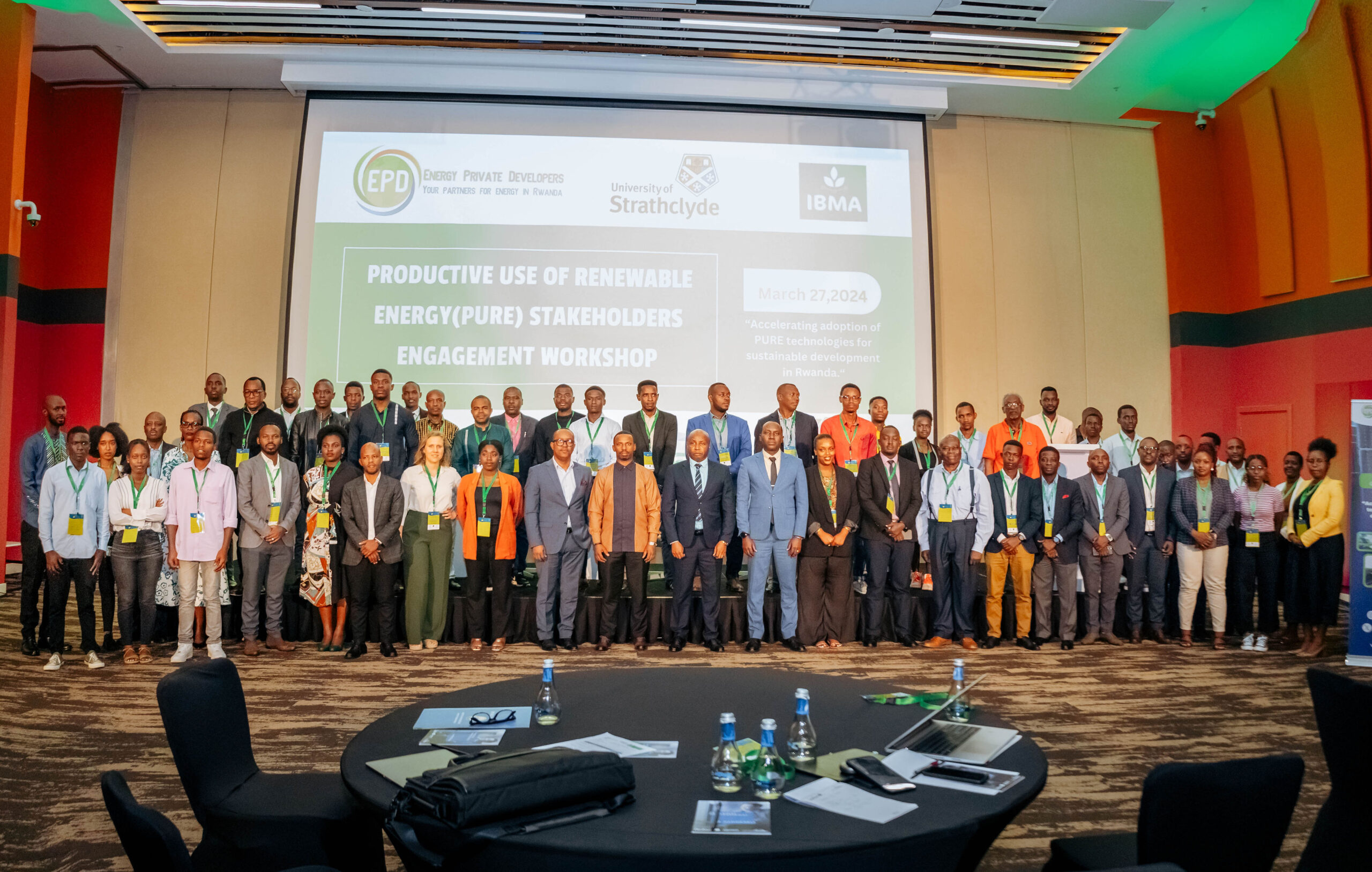Stakeholder engagement and the building of networks that lead to new communities of practice is fundamental to the GRC’s approach. That being the case, the selection of GRC hub delivery partners was influenced by their existing stakeholder engagement and ability to mobilise existing networks. EPD in Rwanda demonstrated this brilliantly in their rapid delivery of initiation workshops that helped to shape the next phase of GRC work.
Female Inclusion Workshop
Launching a new report detailing female inclusion in energy, over 100 attendees, including government officials, policy makers, higher learning institutions and industry stakeholders gathered in Kigali. Of the several recommendations made to the sector, two key outcomes to be taken forward by the GRC were:
- Support for an industrial internship programme for female graduates
- Establishing a Women in Energy mentorship programme, in collaboration with the PowerHer initiative.
View the video summary of the event here!
Productive Use of Renewable Energy Workshop
Productive uses of renewable energy (PURE) has become an essential topic of research and innovation in recent years. PURE focuses on using clean energy sources to power income-generating activities and thereby improve the sustainability of business models for deploying renewable energy at scale, as well as enhancing the impact on livelihoods. Technologies such as solar-powered irrigation systems or agricultural processing equipment, can increase agricultural productivity, enhance food security and create jobs.
The workshop revolved around two panels sessions. The first session was comprised of representatives from the Ministry of Infrastructure (MININFRA), the Rwandan Standards Board (RSB), the Rwandan Development Board (RDB), and the Development Bank of Rwanda (BRD), which discussed on the topics of policy, regulation and standards, incentives to enhance affordability, and access to finance.
The second session comprised representatives from Gogla, Africa Energy, Carnegie Melon University, University of Rwanda and IPRC Tumba College who discussed the topics of market opportunities and relevant technologies in the PURE sector as well as the promotion of R&D in the PURE sector.
View the video summary of the event here!
Solar Commercial and Industrial Workshop
Recognising the need to ramp up the use of decentralised solar beyond the solar home system sector, this workshop gathered close to 100 stakeholder, including private sector, government stakeholders, financial institutions & other funding agencies, development partners and academic & learning institutions. Delving into key regulatory and commercial barriers that limit the size of projects and restrict revenue streams, the workshop established priority areas for policy advocacy and a list of support actions to raise awareness of solar C&I solutions with large energy users.
View the video summary of the event here!
Academia and Industry Collaboration Workshop
The motivation for this workshop was recognition that Rwanda has a growing academic capacity and there was a need to continue to grow the research impact through better collaboration with industry and a focus on industry defined priorities. This resonates strongly with the GRC team at Strathclyde where industry partnerships around renewable energy generation and grid integration technologies are a major part of research portfolio.
The Key Note speech was given by Dr. Ignace Gatare, the Principal of the College of Science and Technology (CST), University of Rwanda who said “we can look at the history of successful countries in terms of research and technology advancement, and you will find that the strategic partnership between the academia and industry has been the bedrock of the growth” and pointed to the clear opportunity that exists through the University of Rwanda hosted African Center Excellence of Energy for Sustainable Development (ACEESD) and its Grid Innovation and Incubation Hub (GIIH).
A list of actions for EPD to take forward were agreed on the day. Fundamentally, these come down to improving mutual understanding of industry needs and academic capacity, then identifying and promoting collaboration opportunities – something the GRC will priortise.
View the video summary of the event here!
